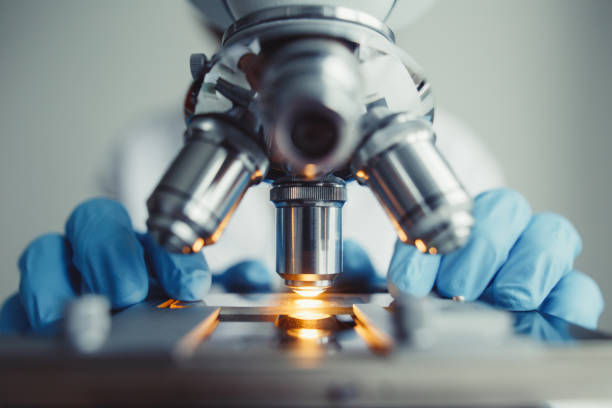JAKARTA, incaschool.sch.id – Science education thrives on curiosity, exploration, and experimentation. However, the path to effective hands-on learning is often paved with challenges and setbacks. My journey in encouraging hands-on science exploration has been filled with both mistakes and triumphs. In this article, I share my experiences of how I messed up, learned from my failures, and ultimately found joy in fostering a love for science among my students.
The Importance of Hands-On Learning in Science

1. Defining Hands-On Learning
Hands-on learning, or experiential learning, involves engaging students in active participation, allowing them to explore concepts through direct experience. In science education, this method is crucial for:
- Enhancing Understanding: Students grasp complex scientific concepts more effectively when they can see and manipulate materials.
- Fostering Curiosity: Hands-on activities ignite curiosity and encourage students to ask questions and seek answers.
- Developing Critical Thinking: Engaging in experiments promotes problem-solving and analytical skills.
My Journey in Promoting Hands-On Science Exploration
1. The Initial Attempt: A Lesson Gone Wrong
Experience
In my early attempts to implement hands-on science activities, I was eager to engage my students with an exciting chemistry experiment involving chemical reactions. I envisioned a lively classroom filled with enthusiasm and discovery.
The Mistake
Unfortunately, I underestimated the complexity of the experiment and the necessary safety precautions. The materials I chose were not adequately prepared, leading to a chaotic situation where students were confused and frustrated.
Reflection
- A Learning Moment: This experience taught me the importance of thorough preparation and understanding the needs of my students. I realized that not every experiment would go smoothly, and that was okay.
2. Getting Back Up: Learning from Mistakes
Experience
After the initial failure, I took a step back to reassess my approach. I sought feedback from my students and colleagues, which provided valuable insights into how I could improve.
Strategies Implemented
- Simplifying Experiments: I focused on simpler experiments that were age-appropriate and easier to manage, ensuring that all students could participate meaningfully.
- Incorporating Safety Protocols: I emphasized safety procedures and made sure students understood the importance of following guidelines during experiments.
3. Finding the Fun: Creating an Engaging Environment
Experience
With renewed determination, I began to create a more engaging and supportive environment for hands-on learning. I wanted my students to feel excited about science and empowered to explore.
Strategies Implemented
- Interactive Stations: I set up interactive science stations where students could rotate through various hands-on activities, allowing them to explore different concepts at their own pace.
- Encouraging Inquiry: I encouraged students to ask questions and design their own experiments, fostering a sense of ownership over their learning.
Key Takeaways from My Journey
1. Embrace Mistakes as Learning Opportunities
Importance of Mistakes
Mistakes are an inevitable part of the learning process, especially in hands-on science education. Embracing these moments can lead to valuable insights.
- Model Resilience: By sharing my own mistakes and how I learned from them, I modeled resilience for my students, encouraging them to view challenges as opportunities for growth.
- Encourage Experimentation: Create a classroom culture where experimentation is celebrated, and students feel safe to take risks without fear of failure.
2. Foster a Collaborative Learning Environment
Collaboration in Learning
Collaboration enhances the hands-on learning experience. Encouraging teamwork allows students to learn from one another and share ideas.
- Group Projects: Implement group projects that require collaboration and communication, allowing students to work together to solve problems and conduct experiments.
- Peer Teaching: Encourage students to teach each other concepts they understand well, reinforcing their knowledge and building confidence.
3. Connect Science to Real-World Applications
Relevance of Science
Connecting science concepts to real-world applications enhances student engagement and understanding.
- Field Trips and Guest Speakers: Organize field trips to local science centers or invite guest speakers from scientific fields to share their experiences and insights.
- Real-World Problems: Design projects that address real-world problems, encouraging students to apply their scientific knowledge to meaningful issues.
4. Celebrate Successes, Big and Small
Importance of Celebration
Recognizing and celebrating successes, no matter how small, fosters motivation and enthusiasm for learning.
- Showcase Events: Host showcase events where students can present their experiments and findings to peers, parents, and the community.
- Positive Reinforcement: Provide positive feedback and recognition for students’ efforts and achievements, reinforcing their love for science.
Conclusion
My journey in promoting hands-on learning in science education has been a rollercoaster of challenges and triumphs. Through my mistakes, I learned valuable lessons about preparation, resilience, and the importance of fostering a supportive and engaging learning environment.
Encouraging hands-on exploration in science not only enhances students’ understanding of concepts but also ignites their passion for discovery. By embracing mistakes, fostering collaboration, connecting science to real-world applications, and celebrating successes, we can create a vibrant learning environment that inspires the next generation of scientists and innovators. The fun in science exploration is not just in the experiments themselves but in the journey of learning and discovery that lies ahead.
Improve Your Abilities: Explore Our content on Knowledge
Take a Look at Our Latest Article on Language Proficiency!


